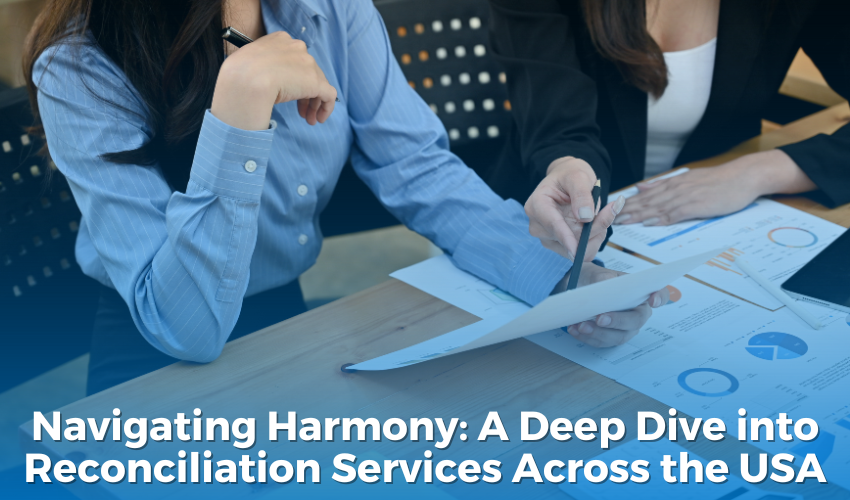

30-01-24
Reconciliation services have emerged as a source of hope in an otherwise fragmented nation such as the USA. By exploring their significance, evolution, and impact in depth, this deep dive will explore their importance across America.
Understanding Reconciliation Services
Reconciliation services in usa encompass an array of programs and initiatives designed to address and resolve conflicts, promote dialogue, and foster understanding among diverse communities. Reconciliation services play a central role in creating a more cohesive society by addressing historical injustices, upholding social justice principles, and encouraging an environment conducive to empathy.
Historical Context To understand the value of reconciliation services in the US, it's necessary to examine its history of conflicts. From Civil Rights Movement protests to struggles over indigenous rights, the nation has faced difficult situations that have left lasting marks on its social fabric. Reconciliation services aim to heal these wounds by acknowledging past injustices while working toward creating more inclusive and equitable futures.
Reconciliation Initiatives Under Development in South Sudan
Reconciliation services have grown over time in the US to encompass an array of approaches: truth and reconciliation commissions, community dialogues, educational programs, and restorative justice practices are just a few examples of initiatives designed to foster healing and understanding among diverse communities. All initiatives share one goal in common: encouraging healing.
Truth and Reconciliation Commissions.
Truth and reconciliation commissions have become popular in the USA after being successfully implemented in post-apartheid South Africa and other nations, providing individuals a space to discuss their experiences, acknowledge historical truths, and work toward collective healing. By uncovering suppressed narratives, these commissions aim to develop a fuller picture of history.
Community Dialogues
Reconciliation services feature dialogue as an essential element. These forums facilitate open, honest conversations between community members, allowing each to express their perspectives, concerns, and aspirations openly and honestly. Such dialogues create spaces for empathy to bloom while individuals recognize shared values across differences.
Educational Programs Reconciliation services reach far beyond formal settings, into schools and educational institutions as well. Integrating diverse perspectives into curricula helps foster a more inclusive understanding of history and culture. By arming younger generations with knowledge about historical injustices and the value of reconciliation, educational programs can play an invaluable role in creating more peaceful futures.
Restorative Justice Practices (RJPs)
Restorative justice approaches have gained widespread acclaim as alternatives to traditional punitive measures. These practices emphasize dialogue, restitution, and rehabilitation over punishment; by addressing the root causes of conflicts and including affected parties in resolution processes, restorative justice helps build stronger communities.
Impact on Society
Reconciliation services have an enormously positive effect on society as a whole, going far beyond immediate conflict resolution to promote an atmosphere of unity and shared responsibility within communities that participate actively in reconciliation processes. Communities that actively pursue reconciliation processes often experience reduced tension, greater empathy, and a stronger commitment to social justice.
Challenges and Opportunities in Business Transactions
Though reconciliation services in the USA have made impressive advances, challenges still exist. Resistance to acknowledging historical injustices, systemic barriers, and sustained commitment are all obstacles to their effectiveness, yet these difficulties provide valuable opportunities for growth, learning, and developing more comprehensive approaches to reconciliation.
Conclusion
Navigating harmony in the United States requires taking a holistic approach that acknowledges historical, cultural, and social divisions. Reconciliation services serve as evidence of America's commitment to healing and understanding; by exploring their history, development, impact, and potential transformative potential further, we gain valuable insight. As our journey toward unity continues, reconciliation services will become ever more pivotal in creating a more harmonious and inclusive America.
Tags : Reconciliation Service in USA













































.jpg)
.jpg)
.jpg)
.jpg)


).jpg)














 Get A Quote
Get A Quote
Leave A Comment